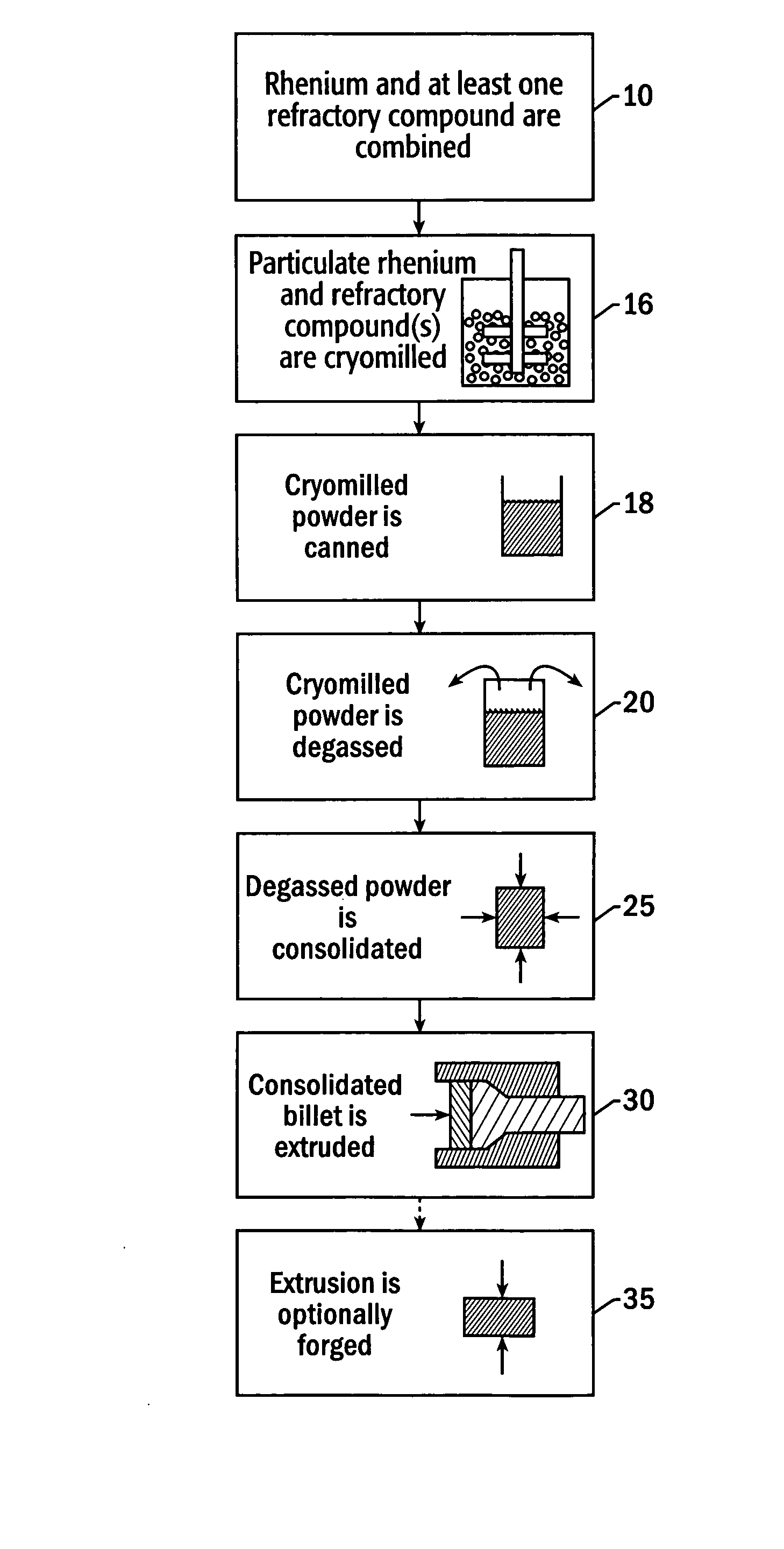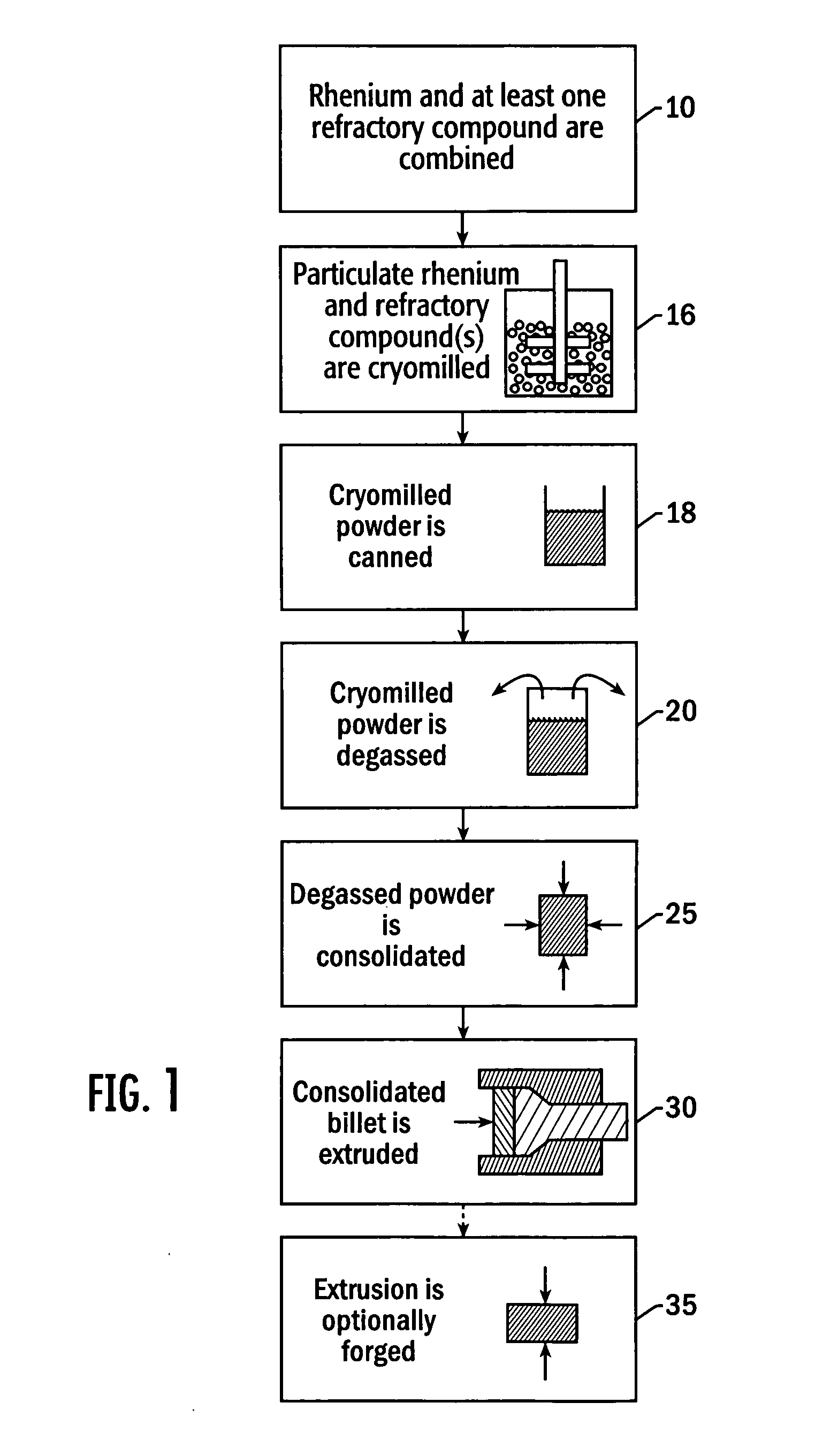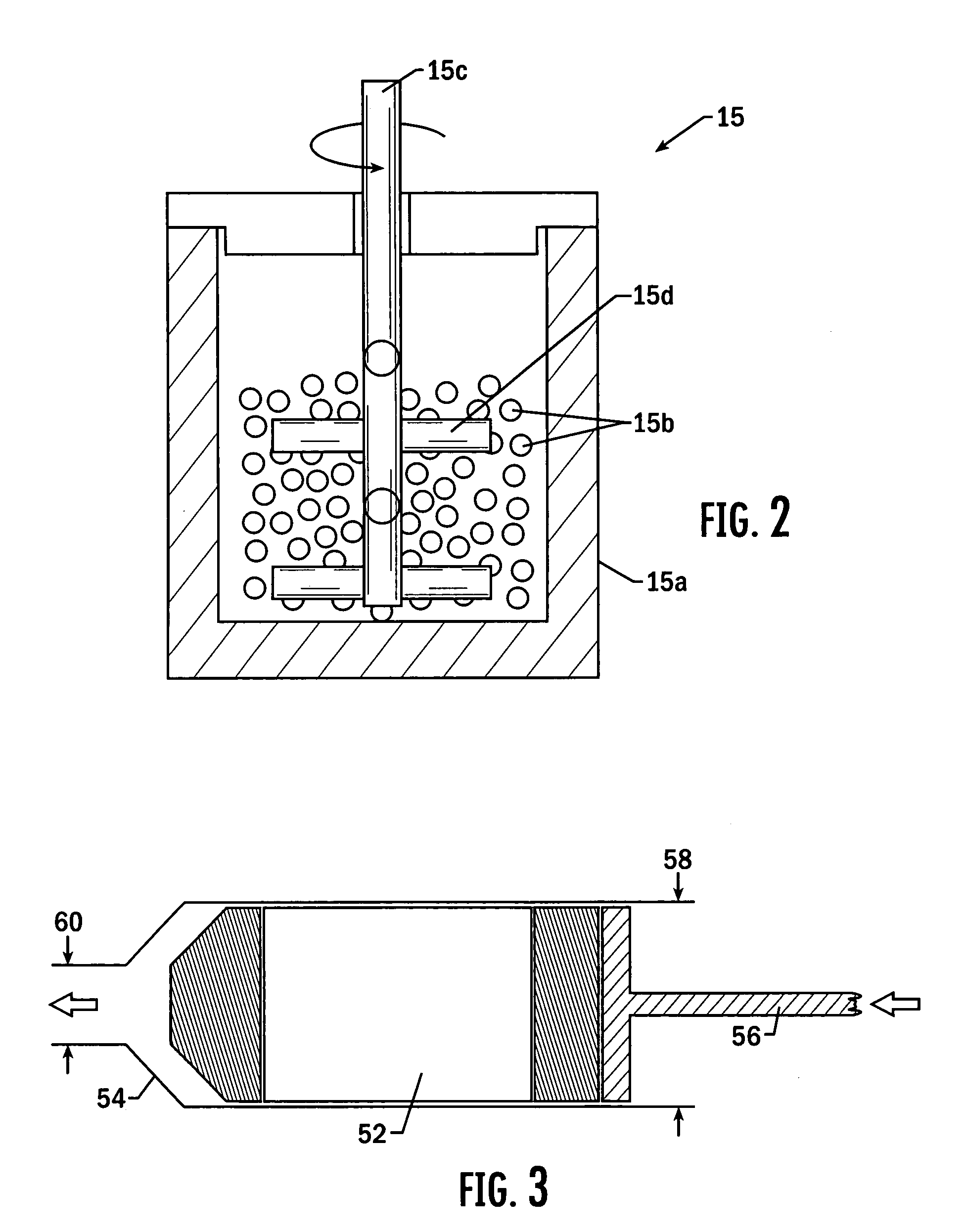Rhenium composite alloys and a method of preparing same
a technology of rhenium composite alloys and rhenium alloys, which is applied in the field of cryomilled alloys, can solve the problems of increasing the cost of iridium and rhenium, and increasing the overall cost and weight of the propulsion system, so as to reduce the amount of rhenium used in high temperature applications, improve the mechanical properties of the alloy, and minimize the growth of large grains
- Summary
- Abstract
- Description
- Claims
- Application Information
AI Technical Summary
Benefits of technology
Problems solved by technology
Method used
Image
Examples
Embodiment Construction
[0017] The present inventions now will be described more fully hereinafter with reference to the accompanying drawings, in which some, but not all embodiments of the invention are shown. Indeed, these inventions may be embodied in many different forms and should not be construed as limited to the embodiments set forth herein; rather, these embodiments are provided so that this disclosure will satisfy applicable legal requirements. Like numbers refer to like elements throughout.
[0018] Embodiments of the invention provide a rhenium composite alloy that includes a high melt temperature refractory compound that is present in the alloy in an amount up to about 10 atomic %. As used herein, “alloy” describes the solid solution of rhenium and one or more high melt temperature refractory compounds. In addition, the solid solution may also contain tungsten and / or molybdenum. As with any alloys, the invented alloy may contain very low concentrations of a variety of contaminants or impurities....
PUM
| Property | Measurement | Unit |
|---|---|---|
| melting point | aaaaa | aaaaa |
| yield strength | aaaaa | aaaaa |
| melting point | aaaaa | aaaaa |
Abstract
Description
Claims
Application Information
 Login to View More
Login to View More - R&D
- Intellectual Property
- Life Sciences
- Materials
- Tech Scout
- Unparalleled Data Quality
- Higher Quality Content
- 60% Fewer Hallucinations
Browse by: Latest US Patents, China's latest patents, Technical Efficacy Thesaurus, Application Domain, Technology Topic, Popular Technical Reports.
© 2025 PatSnap. All rights reserved.Legal|Privacy policy|Modern Slavery Act Transparency Statement|Sitemap|About US| Contact US: help@patsnap.com



